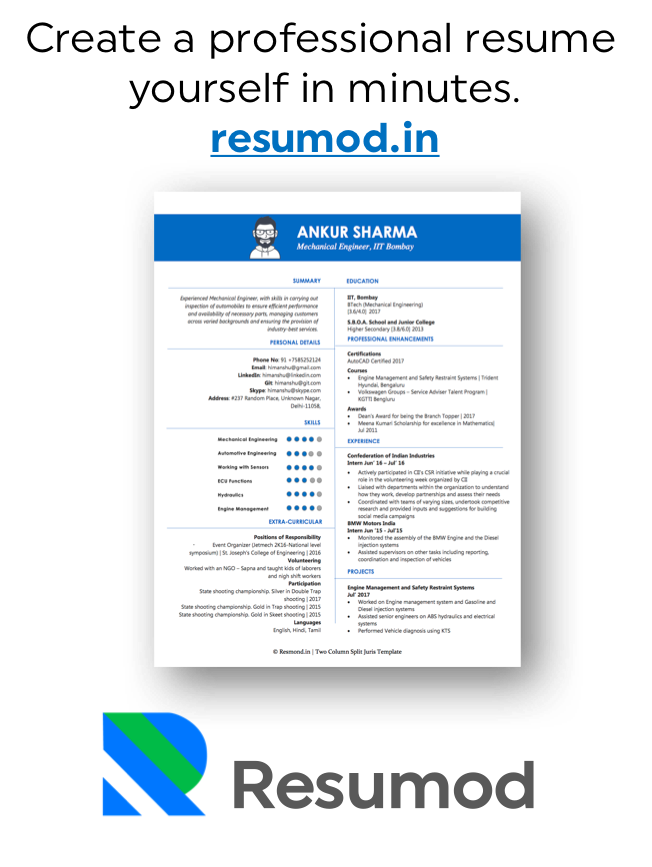Imagine scrolling through your social media feeds, catching up on memes and trends, when you stumble upon your dream job posting. You feel excited, but there’s a catch: the competition is fierce, and the employer is likely evaluating candidates online before even scheduling interviews. Now, ask yourself—does your online presence reflect the professional image you want employers to see? Today, your digital footprint is often the first impression you make, and building it strategically can open doors you didn’t even know existed.
In fact, a 2023 survey says that 77% of recruiters use social media to find potential candidates, with LinkedIn being the most used platform. With the importance of online networking continuing to grow, how can you make sure your online presence is strong enough to attract the attention of employers? Here are some essential tips to help you build a professional and impactful online presence.
Optimize Your LinkedIn Profile
When it comes to online networking, LinkedIn is the undisputed leader. It’s the first platform that employers and recruiters check when they want to know more about a candidate. A well-crafted LinkedIn profile can make all the difference in getting noticed by the right people.
Here are some key steps to optimize your LinkedIn profile:
- Professional Headline: Your headline is one of the first things people see on your profile. Make sure it clearly reflects your current role or the job you’re seeking. Instead of simply stating “Marketing Professional,” consider something more specific like, “Digital Marketing Expert | Social Media Strategy | Content Creation.”
- Compelling Summary: Use the summary section to tell your professional story. Highlight your skills, achievements, and career goals in a way that speaks to potential employers. Keep it concise, yet powerful.
- Skills & Endorsements: Add relevant skills to your profile and ask colleagues or past employers for endorsements. These endorsements serve as social proof of your abilities, making your profile more credible.
- Professional Photo: Make sure you upload a clear, professional photo. Studies show that profiles with photos receive 21 times more profile views and 36 times more messages.
- Experience & Achievements: Don’t just list your job titles. Instead, focus on measurable achievements. Use metrics wherever possible to demonstrate the impact you had in your previous roles.
By taking the time to fine-tune your LinkedIn profile, you increase your chances of standing out to recruiters who are actively searching for qualified candidates.
Join and Participate in Industry-Specific Groups
Networking is not just about connecting with people – it’s about engaging with them. LinkedIn and other platforms offer various industry-specific groups where professionals gather to share ideas, advice, and job opportunities.
Join groups related to your field, and participate in discussions. Share relevant articles, offer your insights, and engage with others’ posts. By becoming an active participant in these groups, you position yourself as someone who is knowledgeable and passionate about the industry. This not only helps you build relationships with potential employers but also strengthens your professional reputation.
Additionally, participating in discussions gives you the chance to showcase your expertise and learn from others in your field. As you build credibility and visibility within the group, you increase the likelihood of networking with employers or recruiters.
Build a Personal Website or Portfolio
While platforms like LinkedIn are great for networking, having a personal website or online portfolio can take your online presence to the next level. A website allows you to showcase your work, demonstrate your expertise, and share your resume in a more engaging way.
Here’s how you can create a compelling personal website:
- Showcase Your Work: Whether you’re a graphic designer, writer, photographer, or developer, your portfolio should feature your best work. Use clear, high-quality images or links to your work to demonstrate your skills.
- Highlight Achievements and Testimonials: Include a section for testimonials from colleagues, employers, or clients. Positive feedback from others will help build your credibility and highlight your skills.
- About Me Section: Introduce yourself in an engaging way. Briefly tell your professional story, and include your career goals, values, and what sets you apart from other candidates.
Having a personal website makes it easier for employers to learn about you and your work in one convenient place, making you stand out as a more serious and proactive candidate.
Engage with Employers and Industry Leaders on Social Media
Social media is not just for keeping in touch with friends; it’s also a powerful tool for networking with employers and industry leaders. Twitter, for instance, allows you to follow companies and engage with professionals in your field.
Here are some tips for effective social media networking:
- Follow Target Companies: Stay up to date on the companies you’re interested in by following them on platforms like Twitter and Instagram. Engage with their posts and contribute to the conversations they initiate.
- Engage with Industry Leaders: Many influential professionals share valuable content on social media. Don’t be afraid to comment on their posts, ask questions, or share your thoughts. This shows that you’re genuinely interested in the industry and can help you stand out as a thoughtful and engaged professional.
- Use Hashtags: On platforms like Twitter and Instagram, using relevant hashtags can increase the visibility of your posts. For example, if you’re a job seeker in digital marketing, using hashtags like #DigitalMarketingJobs or #MarketingCommunity can help you connect with industry leaders and recruiters.
Just remember to keep your interactions professional and aligned with your career goals. Social media can be a great way to build relationships, but it’s important to maintain a positive and professional online persona.
Leverage Job Boards and Online Communities
Job boards and online communities can also play a significant role in building your online presence. Websites like Indeed, Glassdoor, and AngelList allow you to connect with employers and apply for positions directly. Make sure your profile is complete and up-to-date on these platforms, and actively apply for roles that interest you.
Additionally, explore niche job boards and online communities specific to your industry. Whether you’re in tech, healthcare, education, or another field, there are likely specialized platforms where employers actively seek talent.
Be Consistent and Authentic
The key to successful online networking is consistency. Your online presence should be cohesive across different platforms. Ensure that your LinkedIn, personal website, social media accounts, and other profiles reflect the same professional image and values.
Authenticity is also important. Be yourself in your interactions and build genuine relationships with others. People are more likely to remember you and connect with you if you show up as your authentic self, rather than trying to be something you’re not.
Conclusion
Building a strong online presence takes time and effort, but it’s one of the most effective ways to network with employers and boost your chances of landing your dream job. By optimizing your LinkedIn profile, participating in industry groups, creating a personal website, and engaging with employers on social media, you’ll increase your visibility and make meaningful connections with professionals in your field.
As you continue to build and refine your online presence, remember that it’s all about creating opportunities for connection. The more active and engaged you are, the more likely you are to catch the attention of the right employers. In the competitive job market of today, being visible online isn’t just a choice – it’s a necessity.
With a strong online presence, you’re not just waiting for opportunities to come your way—you’re actively creating them.





